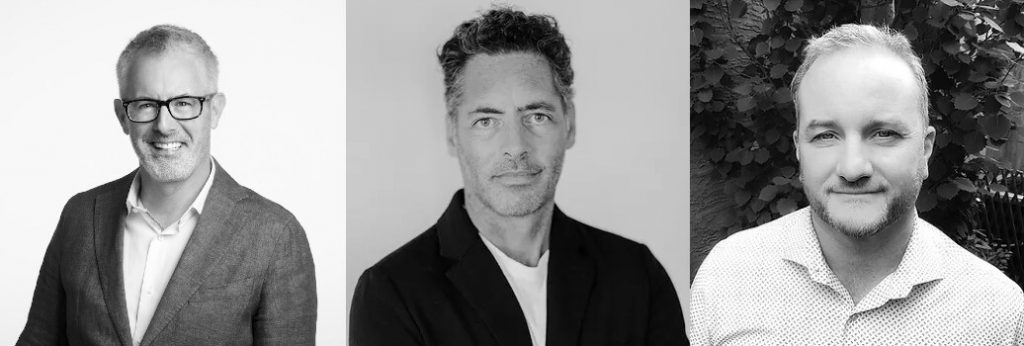Alberta’s Thin Air Labs says in four months it helped raise approximately $3 million CAD for Canadian startups through its Funding Catalyst program. Now, Thin Air is expanding its services to Toronto.
“We see a need not just across Canada but across North America, and probably globally, to help companies navigate this type of funding source,” Andrew Browne, Thin Air’s head of business development and lead for the Funding Catalyst team, told BetaKit.
The funding source in question actually comes from over 1,200 different funding programs available for Canadian innovation-based startups and companies. Those programs include private grants, philanthropic and foundation grants for things like R&D, investment applications for accelerators of competitions, and debt capital.
“We see a need not just across Canada but across North America, and probably globally, to help companies navigate this type of funding source.”
– Andrew Browne
Through its Funding Catalyst program, Thin Air helps companies identify the right program, and helps founders compile all the documentation needed.
Then, Thin Air staff tell the story of the startup in what they say is an understandable narrative for government audiences to help them secure non-dilutive funding. Thin Air estimates it saves founders 20 hours of their time.
Thin Air recently expanded its Funding Catalyst program to Toronto along with its Product Traction service.
Thin Air got its start in January 2020 after managing partner James Lochrie, and his then co-founder Kirk Simpson, sold their previous company, Wave – a financial planning platform for small businesses – to H&R Block in 2019 for $537 million CAD.
Thin Air describes itself as an “ecosystem studio,” and a “new type of venture builder” with both a venture capital arm, and an Impact Services team that helps early stage startups accelerate their growth.
Lochrie told BetaKit the whole goal of forming Thin Air is because he and his partners, Jim Gibson and Greg Hart, want to build companies. “That’s what we are, company builders, not just investors,” Lochrie said.
Lochrie noted that Thin Air’s teams are full of experienced people from some of Canada’s best known tech firms. The Product Traction group, for example, contains people who previously worked at Wave, Shopify, League, Benevity, and Clio.
“We have dozens and dozens of years in helping these companies go to maturity,” Lochrie said. “It really was a personal desire to work closely with the best entrepreneurs in Canada and help them build their dreams. And through doing that we find success as well, and we also find our motivation. We want to be part of organizations that are building spectacular products to help people across the world.”
RELATED: Rhino Ventures unveils $120 million third fund to invest beyond Western Canada
Thin Air comprises a venture capital fund as well as its two service lines, Funding Catalyst and Product Traction. Thin Air’s Fund I aims to reach $100 million in capitalization, and Lochrie said it is imminently making a first close of $30 million.
“That’s due within weeks, not months, so we’re just herding the final cats on that one, and then we’re continuing to pursue the rest of the capital through a second close with our institutional investors,” he said.

But today, what Lochrie really wants to talk about isn’t the fund, but rather Funding Catalyst and Product Traction. “Offering these services to founders is a very unique proposition to them,” Lochrie said. “That’s where I think the meat is in what we’re doing right now. The fund is going to be the fund, and it’s going to be like any other fund, but it’s the other side of the business that’s really exciting and really making a difference in the market.”
For instance, the Funding Catalyst team helped True Angle, a health venture that has developed a device to aid patients with swallowing disorders, secure a head of sales. Funding Catalyst obtained a grant for True Angle that covers 75 percent of the first year of a salary for a commercialization associate.
Funding Catalyst currently has helped founders submit grants that are chasing research development dollars, funds to scale teams, access new markets, obtain regulatory approvals, patent applications, and accelerate the development of Alberta ventures.
“It really was a personal desire to work closely with the best entrepreneurs in Canada and help them build their dreams.”
– James Lochrie
While Funding Catalyst matches founders with appropriate funding programs, the Product Traction service helps founders identify and remove common barriers to venture growth. The latter offers product road mapping, marketing, organizational and process optimization, product design, among other services.
To date the Product Traction team has worked with 28 different ventures, and done 45 deals; the latter includes repeat business.
Thin Air’s approach of providing startups with specific support, in addition to venture funding, is part of a larger trend of venture capital firms building out teams to offer different support to startups. This has been seen in Silicon Valley, and, closer to home, Georgian Partners is one example of providing what it calls “an intelligent, data-driven platform” for its portfolio, with the aim of helping them to accelerate company growth.
While Thin Air may be part of this trend, its approach stands apart, as it began offering startup service lines right from the get-go, before creating a venture fund.
While it doesn’t have a physical office in Toronto, Thin Air has several employees working in the city. Now, as it scales its two service lines in central Canada, Thin Air is looking at more targeted marketing to Toronto ventures to let them know how its two service teams can fill gaps that early-stage companies might have when their teams are too small, inexperienced, or lacking certain competencies.
Back in Calgary, Lochrie said of Thin Air’s Toronto expansion: “We’re just pushing ourselves into that market because it is the largest venture backed market in Canada. It’s got some amazing companies, amazing founders, and we already have a very robust network of customers there and a team on the ground there, so it really is just an expansion of something that is working really well for venture-backed companies already.”


